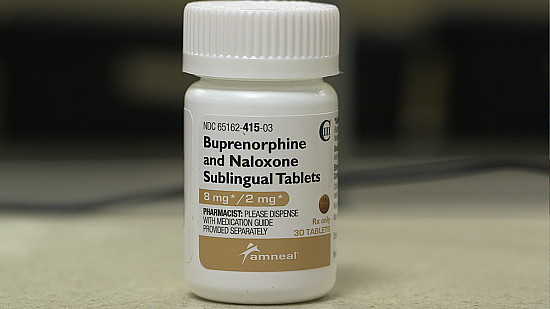Beyond appetite suppression
New evidence suggests blockbuster weight-loss drugs might also curb addictions and other types of compulsions. What does the future hold?
- Reviewed by Toni Golen, MD, Editor in Chief, Harvard Women's Health Watch; Editorial Advisory Board Member, Harvard Health Publishing; Contributor

It's nearly impossible to miss the buzz surrounding the newest generation of obesity drugs, whose popularity is soaring alongside reports of jaw-dropping weight loss among people taking them.
Semaglutide — first marketed as Ozempic for diabetes and later as Wegovy for obesity — is heralded as a breakthrough drug for its ability to promote an average loss of 15% to 20% of a person's body weight. But it's becoming apparent that the medications, which include others in its class and mimic a naturally produced hormone called GLP-1, might offer additional benefits, dampening cravings for things other than food.
Some people taking GLP-1 drugs have reported less interest in addictive and compulsive behaviors such as drinking alcohol, smoking, gambling, shopping excessively, and even biting their nails. Dr. Caroline Apovian, co-director of the Center for Weight Management and Wellness at Harvard-affiliated Brigham and Women's Hospital, is hearing similar accounts from her own patients, especially about cravings for alcohol and sweets.
Why might this happen? GLP-1 drugs, which suppress appetite and help people feel full, appear to hamper activation of the brain's reward pathways. These are normally stimulated by substances such as food, alcohol, and nicotine as well as pleasurable activities such as gambling or shopping.
"We're not quite sure why, but they're doing something very positive for behavioral change," Dr. Apovian says. "It's a breath of fresh air."
Intense research
GLP-1 medications are already producing surprising long-term health benefits in areas other than weight loss. Wegovy may lower the risk of serious heart problems such as heart attack and stroke by 20%, the drug's manufacturer reported in August 2023. The trial involving 18,000 people — not yet published as of September 2023 — is apparently the first to show that GLP-1 drugs can confer heart health benefits for people who are overweight but don't have diabetes.
Other research is beginning to unwrap the drugs' potential to quell alcohol abuse and smoking. A September 2022 study of 127 adults published in the journal JCI Insight suggested that people with both obesity and alcohol use disorder who were treated with a GLP-1 drug called exenatide (Byetta, Bydureon) drank dramatically less than those who received only a placebo drug. Participants who received exenatide also displayed significantly less activation of the brain's reward centers when shown pictures of alcohol while undergoing functional MRI scans.
Another small trial in progress is focusing on 48 people with alcohol use disorder who also smoke. It aims to determine if those who receive escalating doses of semaglutide over two months will drink and smoke less than participants who receive a placebo injection.
If further research confirms preliminary findings, Dr. Apovian believes the stampede to obtain these drugs will only increase. But FDA approval for uses other than diabetes and obesity will likely take several more years, after large clinical trials are completed. "I think there will certainly be more demand, which is already rising astronomically," she says.
Reaping advantages
The success of GLP-1 drugs for a range of cravings could offer proof that addictions and compulsions stem from brain-based disorders, not a lack of willpower, Dr. Apovian says. "A moral failing? We have to get rid of that stigma. The big punchline here is that all of these are diseases."
If you're intrigued at the thought of using one of these drugs to curb an addiction or compulsive behavior, Dr. Apovian suggests these tactics.
Pursue it. If you're struggling with obesity but aren't taking a GLP-1 drug, perhaps it's time to start. "Someone with obesity who also has compulsions for alcohol, gambling, or smoking could certainly obtain one of these medications for obesity and then potentially benefit from its other effects," she says.
Watch for cheaper options. Wegovy and other newer GLP-1 drugs can be costly and in short supply. But other first-generation GLP-1s approved for diabetes or obesity, including dulaglutide (Trulicity) and liraglutide (Saxenda), may be sold as generics within the coming year. That should make them easier to obtain — and far more affordable. "Staying patient is tough to do," Dr. Apovian says. "But some GLP-1 drugs are less expensive or perhaps will be soon."
Image: © katiko-dp/Getty Images
About the Author

Maureen Salamon, Executive Editor, Harvard Women's Health Watch
About the Reviewer

Toni Golen, MD, Editor in Chief, Harvard Women's Health Watch; Editorial Advisory Board Member, Harvard Health Publishing; Contributor
Disclaimer:
As a service to our readers, Harvard Health Publishing provides access to our library of archived content. Please note the date of last review or update on all articles.
No content on this site, regardless of date, should ever be used as a substitute for direct medical advice from your doctor or other qualified clinician.
















